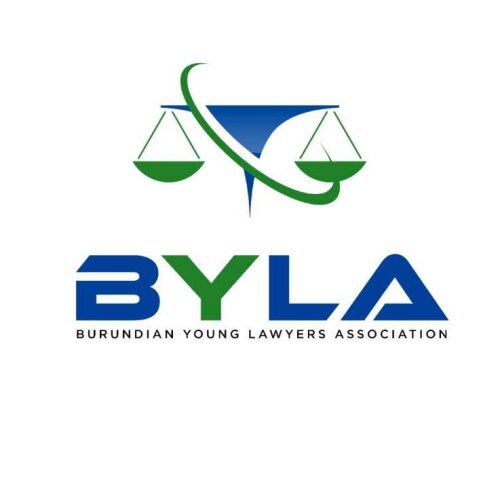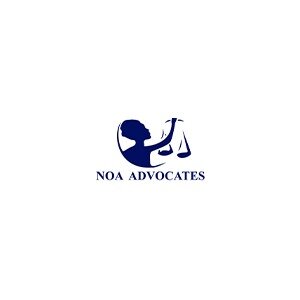Best Public-Private Partnerships (PPP) Lawyers in Burundi
Share your needs with us, get contacted by law firms.
Free. Takes 2 min.
Or refine your search by selecting a city:
List of the best lawyers in Burundi
About Public-Private Partnerships (PPP) Law in Burundi
Public-Private Partnerships, often referred to as PPPs, are collaborations between government entities and private sector organizations to deliver public services or infrastructure. In Burundi, PPPs are increasingly embraced as a means to enhance development, improve public service delivery, and attract private investment to areas such as transport, energy, water supply, and health. The PPP legal framework in Burundi provides guidelines for structuring these partnerships, ensuring a balance of risk and benefit sharing, as well as promoting transparency and efficiency.
Why You May Need a Lawyer
Engaging in a PPP project in Burundi involves a complex blend of legal, financial, and operational issues. You may need a lawyer if you are:
- Considering entering a PPP agreement as a public or private party.
- Negotiating contract terms, risk allocations, or investment responsibilities.
- Dealing with land acquisition, licensing, or permitting for PPP projects.
- Facing issues related to compliance with local laws or regulations.
- Resolving disputes arising from PPP agreements.
- Ensuring that your interests and investments are protected.
- Seeking to understand the tendering and procurement process for PPP projects.
- Addressing project financing and profit-sharing concerns.
Legal expert guidance ensures that your rights are protected, contractual terms are fair, and that your project is structured in compliance with Burundi’s PPP legal framework.
Local Laws Overview
Burundi’s legal framework for Public-Private Partnerships is underpinned by legislation designed to encourage private sector participation in public projects. Key aspects include:
- The PPP law establishes the process for initiating, approving, and managing PPP projects in Burundi.
- The framework outlines responsibilities, risk-sharing, and financial arrangements between public and private parties.
- Transparent bidding and procurement processes are mandated to promote fair competition.
- Contracts must specify duration, obligations, performance standards, and termination clauses.
- There are specific provisions for dispute resolution, including negotiation, mediation, and access to arbitration or judicial remedies.
- Environmental and social impact assessments are required for PPP projects that might affect communities or natural resources.
- There is oversight from governmental bodies to ensure compliance and project viability.
Understanding and navigating these laws is essential for anyone considering entering into a PPP in Burundi.
Frequently Asked Questions
What is a Public-Private Partnership (PPP)?
A PPP is a contractual arrangement between a public authority and a private sector partner to finance, construct, manage, or operate a public service or infrastructure project.
Who can participate in PPP projects in Burundi?
Both domestic and international private companies can partner with government agencies, ministries, or state-owned enterprises on PPP projects in Burundi.
What sectors are open to PPP projects?
Common sectors include transportation (roads, airports), energy, water supply, health services, education, and housing. Other areas may be considered based on government priorities.
How are PPP projects selected and approved?
PPP projects are typically chosen based on government development plans and are subject to feasibility studies, environmental and social assessments, and approval by designated government authorities.
How is the tendering process conducted?
PPP projects involve competitive bidding. Interested private partners must meet qualification requirements and submit proposals that are evaluated for technical and financial viability.
How are risks and responsibilities allocated?
The PPP contract will specify how risks, such as financing, construction, operation, and demand, are distributed between the public and private partners to ensure balance and sustainability.
Do PPP contracts require environmental assessments?
Yes, most PPP projects in Burundi require compliance with environmental and social regulations, including conducting impact assessments and engaging stakeholders.
How are disputes in PPP projects resolved?
Disputes are typically handled through negotiated settlement, mediation, or, if necessary, arbitration or local courts, as defined by the PPP contract terms.
What protections are in place for foreign investors?
Burundi offers legal guarantees to foreign investors, including protection against expropriation, the right to repatriate profits, and access to international arbitration for dispute resolution.
Are there incentives for participating in PPPs?
The government may offer incentives such as tax benefits, investment guarantees, and support in obtaining necessary permits to encourage private sector involvement in PPPs.
Additional Resources
To obtain further guidance, consider reaching out to the following resources:
- Ministry of Finance, Budget, and Economic Planning - Oversees PPP policy and implementation in Burundi.
- Burundi Investment Promotion Authority (API) - Provides information and support to local and foreign investors.
- Public Procurement Regulatory Authority (ARMP) - Supervises the tendering and procurement processes in PPPs.
- Burundi Bar Association - Offers referrals to certified lawyers familiar with PPPs and related issues.
- Chamber of Commerce and Industry of Burundi - Can connect businesses with PPP opportunities and legal experts.
- Relevant non-governmental organizations and development partners working on infrastructure and public-private initiatives in Burundi.
Next Steps
If you believe you need legal advice or representation for a Public-Private Partnership project in Burundi, consider the following steps:
- Clearly define your objectives and role in the potential PPP project.
- Gather all relevant documents, such as project proposals, contracts, and feasibility studies.
- Identify qualified lawyers or law firms that have experience with PPPs and local laws in Burundi.
- Schedule consultations to discuss your needs, potential risks, and the scope of legal services required.
- Request information on fees, timelines, and expected outcomes before formally engaging a lawyer.
- Stay informed about developments in PPP regulations and best practices related to your project sector.
Early legal involvement is key to ensuring compliance, managing risks, and maximizing the benefits of participating in a PPP in Burundi.
Lawzana helps you find the best lawyers and law firms in Burundi through a curated and pre-screened list of qualified legal professionals. Our platform offers rankings and detailed profiles of attorneys and law firms, allowing you to compare based on practice areas, including Public-Private Partnerships (PPP), experience, and client feedback.
Each profile includes a description of the firm's areas of practice, client reviews, team members and partners, year of establishment, spoken languages, office locations, contact information, social media presence, and any published articles or resources. Most firms on our platform speak English and are experienced in both local and international legal matters.
Get a quote from top-rated law firms in Burundi — quickly, securely, and without unnecessary hassle.
Disclaimer:
The information provided on this page is for general informational purposes only and does not constitute legal advice. While we strive to ensure the accuracy and relevance of the content, legal information may change over time, and interpretations of the law can vary. You should always consult with a qualified legal professional for advice specific to your situation.
We disclaim all liability for actions taken or not taken based on the content of this page. If you believe any information is incorrect or outdated, please contact us, and we will review and update it where appropriate.
Browse public-private partnerships (ppp) law firms by city in Burundi
Refine your search by selecting a city.












